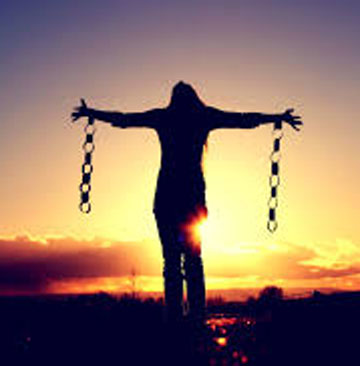“It is for freedom that Christ has set us free. Stand firm, then, and do not let yourselves be burdened again by a yoke of slavery”—Galatians 5:1 (NIV).
To most Americans, the word freedom connotes images of the American flag. We associate July 4 with the freedoms we’ve been granted by the U.S. Constitution. We celebrate our country’s independence with fireworks and parades.
According to dictionary.com, freedom means “the state of being free or at liberty rather than in confinement or under physical restraint.”
Physical freedom is denied those locked behind prison walls. But those who have discovered a relationship with Jesus while in prison will tell you they are, indeed, now free, in spite of the iron bars they peer through each day.
Found throughout the Bible, the word, “freedom,” is familiar to those who’ve read God’s Holy Word. John 8:32 says, “And you will know the truth, and the truth will set you free.”
In an article by Roger Olson, he writes, “Unfortunately, two very different ideas of freedom get confused in many people’s minds. The biblical idea of freedom is different from, but easily confused with, the cultural value of the same name. And neither one is the same as “free will.” It can be confusing to the average Christian who wants to know what “real freedom” is. Is it having choices? Is it lack of coercion and constraint? Is it being able to do whatever you want? In what sense does Christ set us free, and how is that different from what Madison Avenue and Hollywood promise?
“At the very heart of the Christian gospel is the strange truth,” he continues, “that real freedom is found only in giving up everything secular culture touts as freedom. The gospel, it turns out, requires a distinction between the enjoyment of true freedom and the mere possession of ‘free will.’ Not that free will or independence from tyranny is a bad thing; they’re just not true freedom. True freedom, the gospel tells us, is trusting obedience, the obedience of faith. That’s not exactly the image one finds portrayed in popular culture.”
So, what does true freedom mean for those who choose to follow Christ? According to St. Augustine, true freedom is not choice or lack of constraint, but being what you are meant to be.
For too many years of my adult life, I was a slave—a slave to other’s opinions, a slave to the false image I portrayed as someone who had her life together, a slave to the identities I slipped into because of cultural demands. I wasn’t experiencing true freedom. I wasn’t completely free until I embraced the woman God has created me to be.
“Humans were created in the image of God. True freedom, then,” writes Olson, “is not found in moving away from that image but only in living it out. The closer we conform to the true image of God, Jesus Christ, the freer we become. The farther we drift from it, the more our freedom shrinks.”
Only Christ can set us free.

